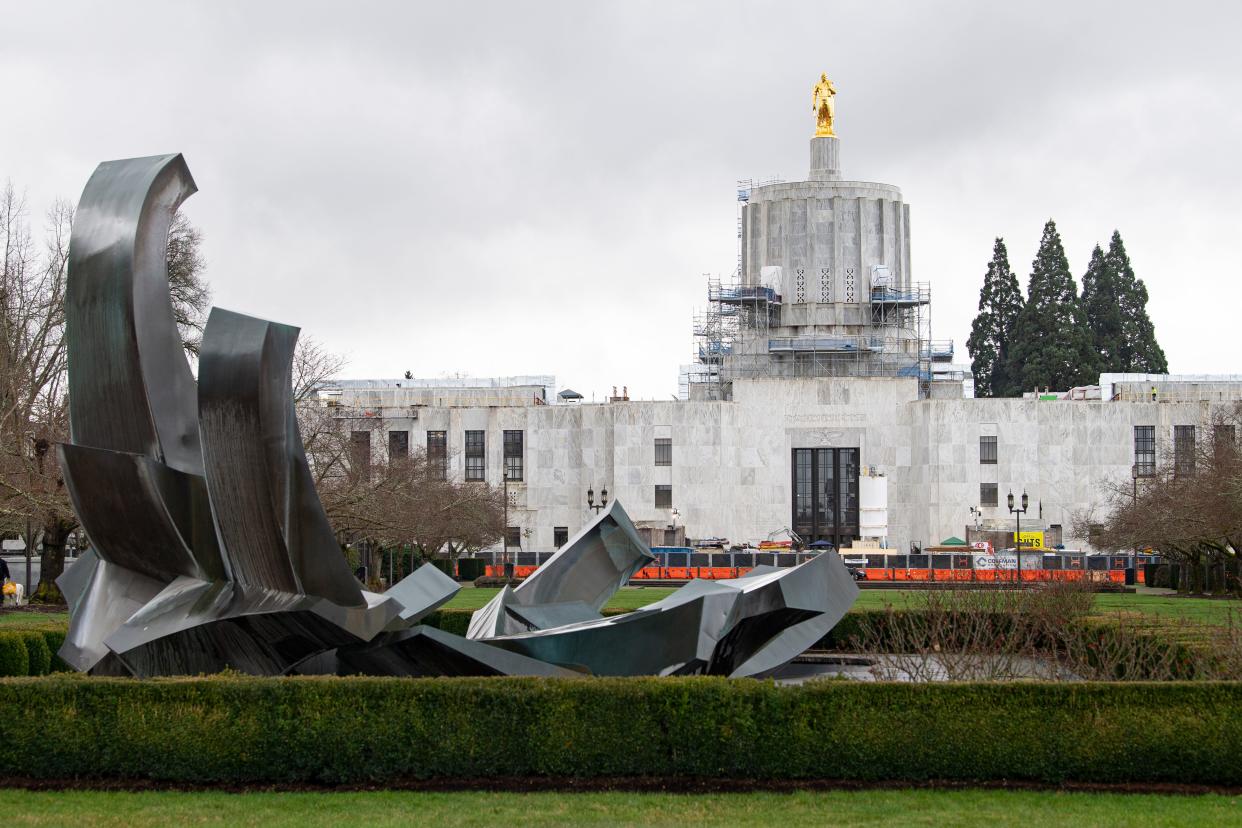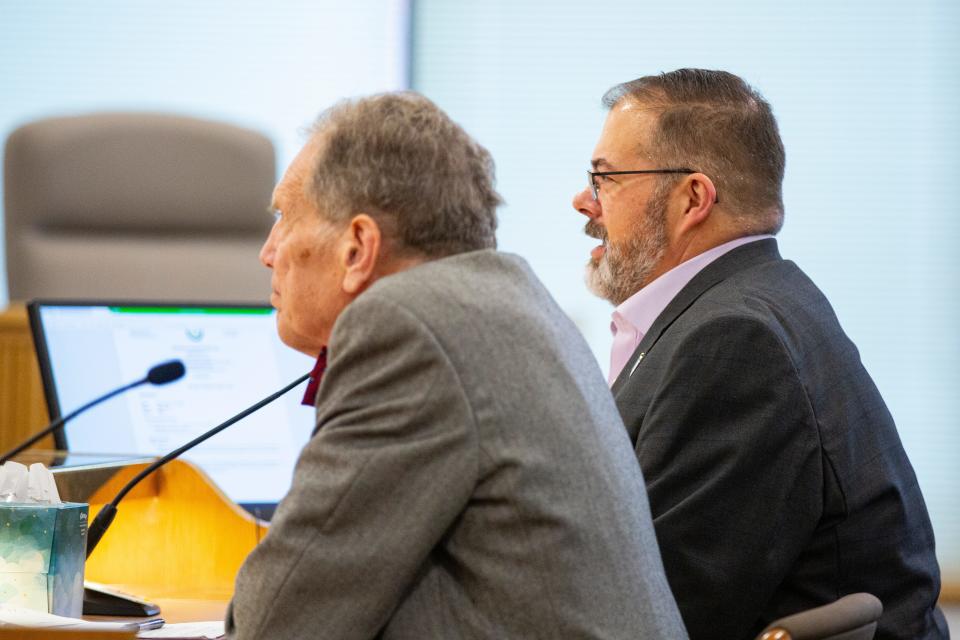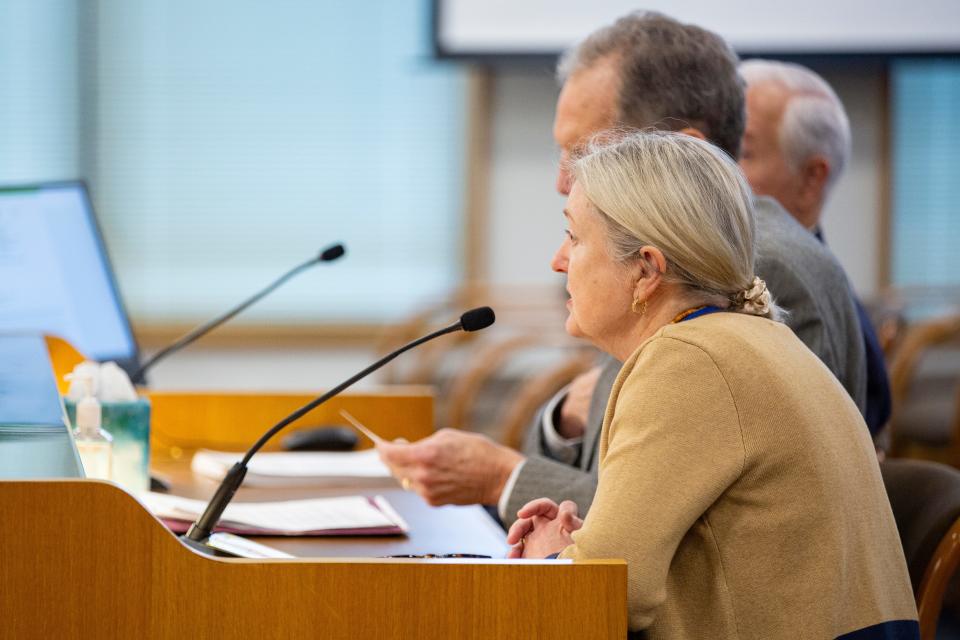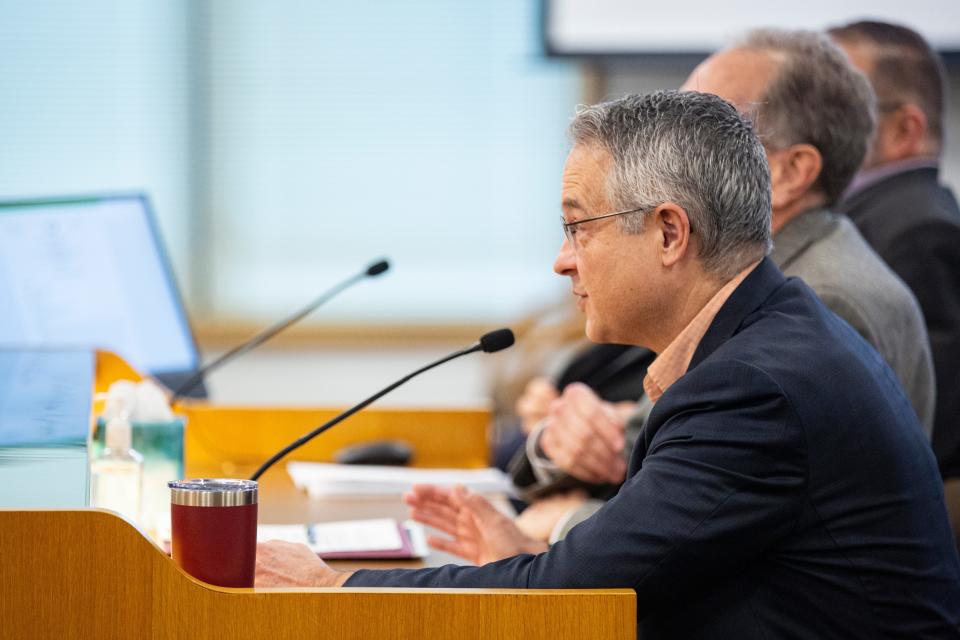Bipartisan support in hearing on proposed $6 million payment to Salem from the state

Proposed legislation to provide Salem about $6 million a year from the state of Oregon to compensate for lost property tax revenue received bipartisan support at a public hearing Monday.
All who provided testimony at the House Committee on Revenue spoke in favor of House Bill 4072 to make state agencies pay a fee to compensate Salem for fire, police and emergency medical services provided based on the agencies' use of state-owned land in the city.
The fees would come to about $5 million to $6 million annually, a sum reached by calculating the acres of state-owned land in the city and total land acreage within city limits.
If passed, Salem could begin getting that money this year under a three-year pilot.
The funds could take a sizeable chunk out of Salem's budget deficit but would not address the entire shortfall.
"In Salem, our challenge funding basic emergency services is exacerbated by the loss of at least $7.5 million each year due to the prevalence of State government properties in the city," Mayor Chris Hoy said in his testimony. "As the State Capitol of Oregon, without a payment in lieu of taxes, emergency services to these state-owned properties are effectively subsidized by Salem taxpayers."

He said the payment would be key in helping fund police, fire and emergency services and address Salem's budget shortfall.
In some capital cities, including Olympia, Washington, state government provides payment in lieu of taxes to help cover some of the services that would have been paid with property taxes.
"This is not novel," Hoy said. "This is a well-established practice in many state capitals throughout the country. We're just asking for your help to try to continue to provide these vital services."
Property taxes are the primary source of funding for Oregon cities for general services, including police and police.
They are deposited into the city’s General Fund and, according to city records, cover 45% of general fund expenses and 77% of the cost of providing police and fire services.
Not every property in Salem is required to pay property taxes. The biggest non-city-exempt property presence in Salem is the state of Oregon, with about $1.65 billion in real market value.
Staff estimated state-owned property accounted for 8% of land within Salem's city limits. If taxed, those properties would generate $7.25 million a year.
Bipartisan backers voice support for bill
The bill's chief sponsors represent Salem, including Rep. Tom Andersen, D-Salem, Sen. Deb Patterson, D-Salem, Rep. Kevin Mannix, R-Salem/Keizer, and Rep. Ed Diehl, R-Salem.
At Monday's hearing, Andersen held up a photo of the Salem Fire Department responding to the Capitol fire in 1935 to highlight the services the city provides to state-owned land.
"I was a Salem city councilor for eight years so I became very, very intimate with the budgetary problems that Salem and all other cities in the state face," Andersen said. "It's especially acute here in Salem."

Patterson said Salem has the lion's share of the state's main facilities and regularly responds to protests, rallies and emergencies.
Salem Area Chamber of Commerce chief executive officer Tom Hoffert and Oregon State Fire Fighters Council Legislative Director Alan Ferschweiler also testified in favor of the bill.
Mannix said the payment could be used as a model for other cities in Oregon impacted by the presence of state agencies. He pointed to a one-time appropriation from the state to Salem in 1989 for $500,000 for fire and emergency services.
"I recognize that this is a significant dimensional shift in how we try to approach this issue, but it's also an important time to recognize that things have changed," Mannix said. "Since that 1989 session, we've had property tax limitations imposed on local governments. So the strain on our cities and in this case, the strain on the city of Salem proportionately is larger, because its resources are limited."
Through written testimony, Ferschweiler said the city responds to emergencies on state-owned land, like the 2008 three-alarm fire at the Capitol, despite receiving no money from the state for those services.

"As the city has seen growing challenges with its budget, essential services have been unable to keep up with need," he said. "If nothing changes, the city may be forced to consider cuts to the fire department even as the city grows. This would have disastrous consequences for the services that Salem Fire Department can provide to state-owned properties, and the city as a whole."
Hoffert said the business community supports payment-in-lieu-of-taxes. He pointed to the city bearing the burden of a high percentage of state-owned land and the significant number of state employees who do not live in the community but still work in Salem.
Several residents also voiced support for the bill.
"The state of Oregon owns billions of dollars worth of real estate in our city, and benefits from our city services, but does not contribute toward the funding of vital services like all of the other residents and business owners," said Salem resident, business owner and physician Chad Bingham in written testimony. "It seems to be a fair solution that the state would be responsible to cover the expense of the services the city provides."
The House Committee on Revenue had technical questions on other capital cities' payment structures and how other cities in Oregon could opt in the future that they planned to research. The next action for the bill had not been scheduled as of Monday afternoon.
For questions, comments and news tips, email reporter Whitney Woodworth at wmwoodworth@statesmanjournal.com, call 503-910-6616 or follow on Twitter at @wmwoodworth
This article originally appeared on Salem Statesman Journal: Proposed $6 million state payment to Salem gets bipartisan support

